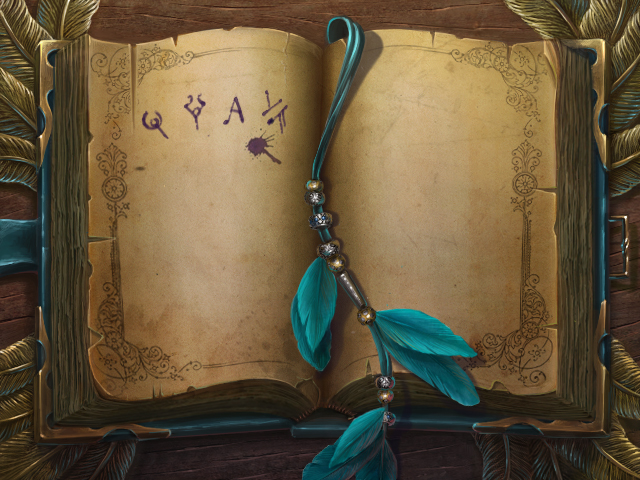Bardic Names
Pseudonyms
The concept of bardic names came from the first true Bard himself. Gregori Darset, The First Poet Laureate of Estoya wanted to differentiate his arcane work as a mage and his artistic expressions as a bard. It would be almost a decade before he fully dedicates himself to Bardic Lore, and he wanted to be free of any type of persecution from mages, many of whom did not take the concept of a bard seriously despite Gregori's Talent.
For many bards, choosing a bardic name is often for the purpose of using a pseudonym. It allows you to build a secret identity around yourself you can adopt at any given point in time. It also allows you to deny things connected to you simply because that is not your name. Bards who double as spies often have many bardic names. Some of them are to be burned and forgotten once they've completed their task, or to live on in infamy in the minds and hearts of those they wronged.
Darset referred to himself as O. S Laureate, which would later pave the way for the official title to be recognized by the government of Espada and the rest of the world soon after. Being The Poet Laureate isn't just a position of office, it is a bardic name you share with the legend himself, and all others who have the title. It's a way of enjoying the fame and sharing (not to mention playing a role in) a story that traces its way back to the first bard in history.
For many bards, choosing a bardic name is often for the purpose of using a pseudonym. It allows you to build a secret identity around yourself you can adopt at any given point in time. It also allows you to deny things connected to you simply because that is not your name. Bards who double as spies often have many bardic names. Some of them are to be burned and forgotten once they've completed their task, or to live on in infamy in the minds and hearts of those they wronged.
Darset referred to himself as O. S Laureate, which would later pave the way for the official title to be recognized by the government of Espada and the rest of the world soon after. Being The Poet Laureate isn't just a position of office, it is a bardic name you share with the legend himself, and all others who have the title. It's a way of enjoying the fame and sharing (not to mention playing a role in) a story that traces its way back to the first bard in history.
Fun fact: O. S Laureate
Darset's first works of art were hidden behind his pseudonym for two reasons. Firstly, it was far more common for women to be artistic, and it was looked down upon for a man to engage in such feminine work. This changed rapidly, especially after the discovery of bardic lore. Secondly, for nearly a decade after the discovery of bardic lore, men were significantly less successful when compared to women in the field.
This goes for anyone in an artistic career, and not just the bards. His bardic name allowed him to impersonate a different gender, avoiding lost commissions and sales of his work on the grounds of having a male creator. This problem was finally addressed when investigations found that even criticism of an individual's work can be radically more negative if the work is written by man, especially if the work lies in specific genres and styles. Bardic Colleges were appalled, and demanded that anyone who submits work must do so anonymously to prevent any individual members from placing this bias on the work. When famous, works written by men became more prevalent, particularly when Darset revealed his pseudonym to the people.
This goes for anyone in an artistic career, and not just the bards. His bardic name allowed him to impersonate a different gender, avoiding lost commissions and sales of his work on the grounds of having a male creator. This problem was finally addressed when investigations found that even criticism of an individual's work can be radically more negative if the work is written by man, especially if the work lies in specific genres and styles. Bardic Colleges were appalled, and demanded that anyone who submits work must do so anonymously to prevent any individual members from placing this bias on the work. When famous, works written by men became more prevalent, particularly when Darset revealed his pseudonym to the people.
Simple and Complex names
There are two kinds of bardic names: simple and complex. A simple bardic name is used the same way any name is. A single word that identifies the bard, but is not their name given at birth. Cinder, O.S. Laureate, and Ivyhollow are all simple bardic names that can be substituted for one’s real name.
A complex name is more of a title, and can be used separately or in conjunction with other bardic names or one’s real name. The Ivyhollow Legacy, Legacy being a complex name given to a bard who uses a name after inheriting it, is a complex name Serenity uses, but she also uses the simple name Ivyhollow as a first name or surname. Both mean the same thing, but can be useful in different situations.
With Cinder Of The Fields, “Of The Fields” is actually a complex bardic name attached to the simple bardic name of Cinder. Some complex names function more like titles either in a prepositional phrase or in a title like The Ivyhollow Legacy. Bardic names can be combined, swapped, replaced, abandoned, readopted, or inherited in any number of ways. The more it changes, however, the less fame one can gain for any one deed, creation, or event. The more consistent the name, the easier it is to make famous.
A complex name is more of a title, and can be used separately or in conjunction with other bardic names or one’s real name. The Ivyhollow Legacy, Legacy being a complex name given to a bard who uses a name after inheriting it, is a complex name Serenity uses, but she also uses the simple name Ivyhollow as a first name or surname. Both mean the same thing, but can be useful in different situations.
With Cinder Of The Fields, “Of The Fields” is actually a complex bardic name attached to the simple bardic name of Cinder. Some complex names function more like titles either in a prepositional phrase or in a title like The Ivyhollow Legacy. Bardic names can be combined, swapped, replaced, abandoned, readopted, or inherited in any number of ways. The more it changes, however, the less fame one can gain for any one deed, creation, or event. The more consistent the name, the easier it is to make famous.

by vasilisa-boo




So, it can be like 'the dread priate roberts', but less piracy. Now i need to come up with alter egos for all of my character ideas.
Lol it should be said that kost is of the good stuff comes after achieving fame. The identity is more of a dread pirate Robert's yes. Lol or gray fox if you remember oblivion.